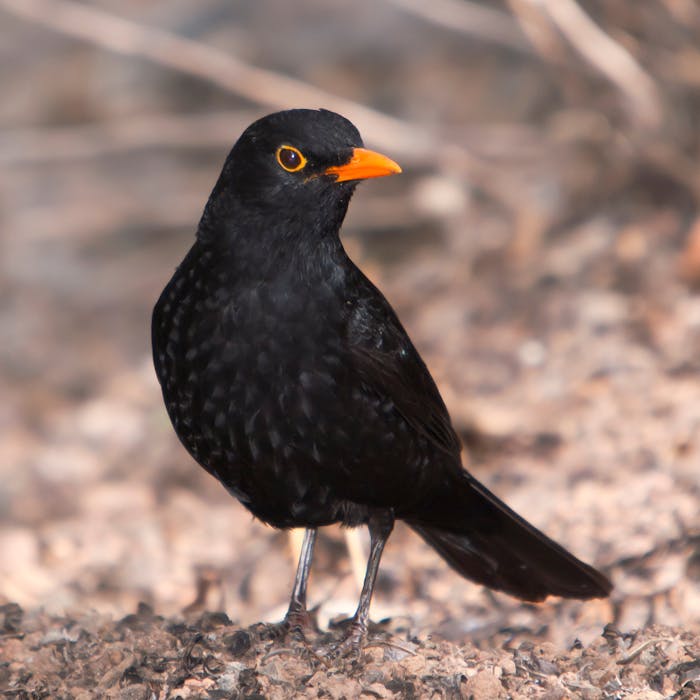
Blackbird
The unimaginatively named blackbird is one of the most common UK birds. The bright orange-yellow beak and eye-ring make adult male blackbirds a striking garden visitor, and its beautiful song is much admired.
The blackbird is a type of thrush. Female blackbirds are brown and juveniles are a speckled russet, with grey black beaks. Partial albinos are quite common.
Blackbirds run on the ground and hop quickly, with brief pauses. They can often be seen standing with head to one side listening for worms. They can also often be heard noisily turning over leaf litter beneath bushes. When the bird alights on the ground, it holds its tail open and raised while the wings are almost drooping. Flight is usually low and brief and although it may be seen in flocks, it is only truly gregarious on migration.
Birds from Scandinavia and the Baltics join our resident blackbirds in winter.
A blackbird's usual note is a low ‘chook-chook-chook’ which develops into a strident chattering when alarmed. The blackbird also emits an insistent ‘cheek-cheek-cheek’.
Its warbling and musical song is emitted when it perches on trees or buildings, or occasionally from the ground or bushes.
Blackbirds live in gardens, thickets, hedges and broad-leaved and coniferous forests. They are common in towns.
They feed on plants and animals, including fruit, seeds, insects and small molluscs. Blackbirds are known for a fondness for fruit and are partial to sultanas, if kindly provided.
Blackbirds nest in hedges, bushes or trees and breed from early spring. Nests can also be found on buildings or crevices in walls. The eggs are light blue in colour with reddish-brown and grey speckles. Incubation is carried out by the female and both parents look after the chicks.
Blackbirds have a relatively short life expectancy, generally living for between 3 and 4 years. This can vary as some do not survive their first year and others may live for longer – the oldest blackbird ever recorded was more than 20 years old.
Further reading
Links to external websites are not maintained by Bite Sized Britain. They are provided to give users access to additional information. Bite Sized Britain is not responsible for the content of these external websites.
